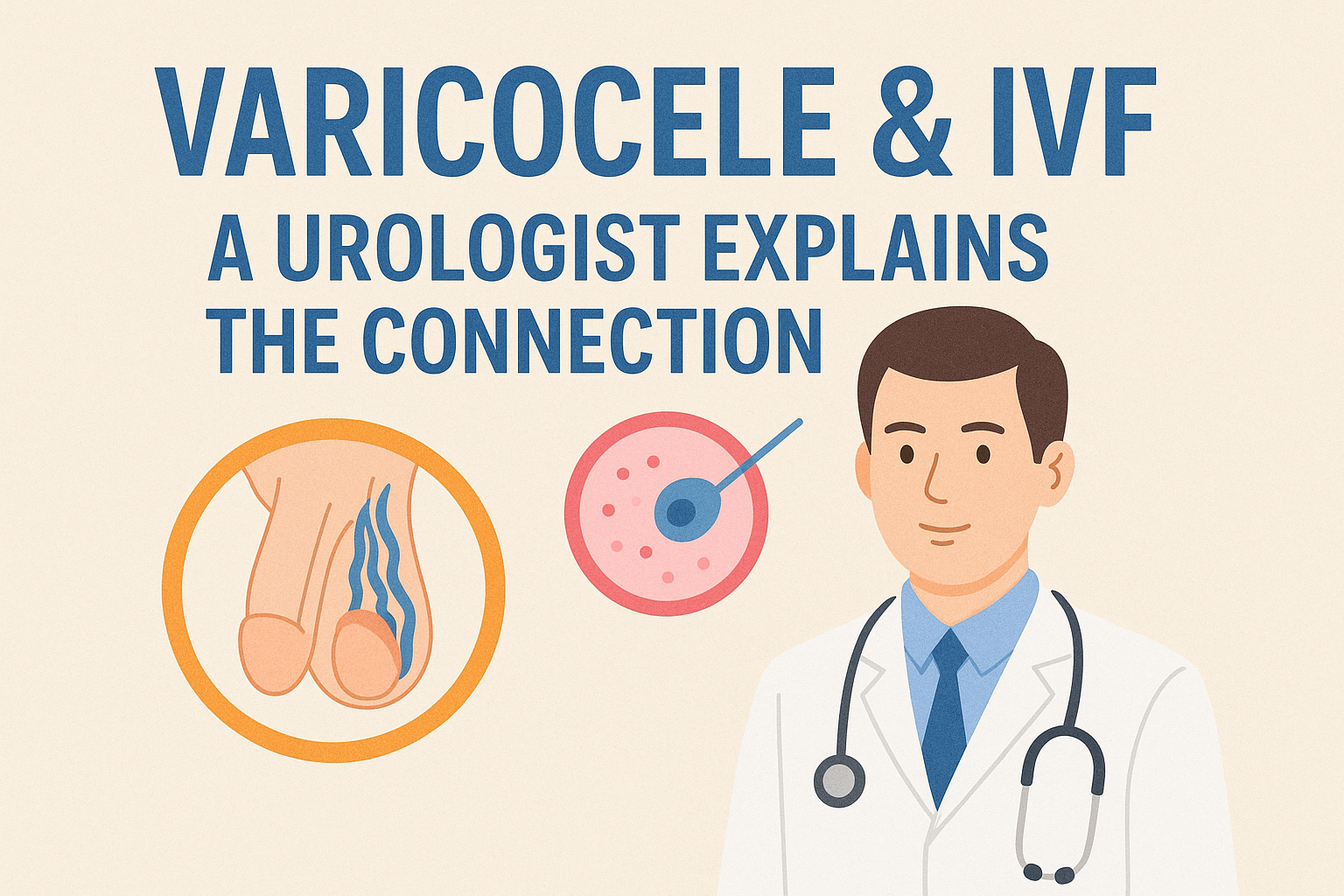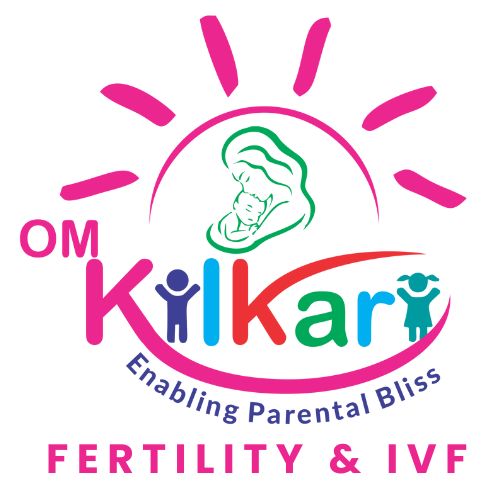Introduction

Infertility affects millions of couples worldwide, with male factors contributing to nearly 40-50% of cases. One common yet often overlooked cause of male infertility is varicocele, a condition characterized by enlarged veins within the scrotum. While varicocele can impair natural conception, advancements in assisted reproductive technologies (ART), such as in vitro fertilization (IVF), offer hope for affected couples.
This article explores the connection between varicocele and IVF, addressing key questions:
- How does varicocele impact male fertility?
- When should varicocele be treated before IVF?
- Can varicocele repair improve IVF success rates?
As a urologist specializing in male infertility, I will provide evidence-based insights to help couples make informed decisions.
What Is a Varicocele?
A varicocele is an abnormal dilation of the pampiniform venous plexus, the network of veins that drain blood from the testicles. It is similar to varicose veins in the legs and occurs due to faulty valves in the spermatic veins, leading to blood pooling and increased scrotal temperature.
Key Facts About Varicocele:
- Prevalence: Affects 15-20% of all men and 40% of men with infertility.
- Location: Most commonly occurs on the left side (85-90%), but can also be bilateral (10-15%) or rarely right-sided.
- Grades:
- Grade 1 (Small): Detectable only with ultrasound.
- Grade 2 (Moderate): Palpable during physical exam.
- Grade 3 (Large): Visible through the scrotal skin.
How Does Varicocele Affect Male Fertility?
Varicoceles can negatively impact sperm production and function through several mechanisms:
1. Elevated Testicular Temperature
The testicles function best at 2-4°C below body temperature. Varicoceles disrupt this by causing venous congestion, leading to heat buildup that impairs sperm production (spermatogenesis).
2. Oxidative Stress & Sperm DNA Damage
Blood pooling increases reactive oxygen species (ROS), which damage sperm DNA, reducing sperm motility (asthenozoospermia) and morphology (teratozoospermia).
3. Hormonal Imbalances
Varicoceles may disrupt Leydig cell function, lowering testosterone levels, which are crucial for sperm development.
4. Reduced Sperm Count & Quality
Men with varicoceles often exhibit:
- Low sperm count (oligozoospermia)
- Poor sperm motility
- Abnormal sperm shape
These factors contribute to difficulty in natural conception, making IVF a viable alternative.
Varicocele & IVF: When Is Treatment Needed?
While IVF can bypass some sperm-related issues, treating a varicocele before IVF may improve outcomes in certain cases.
Should Varicocele Be Repaired Before IVF?
The decision depends on:
1. Severity of Male Infertility
- Mild sperm abnormalities: IVF alone may suffice.
- Severe oligoasthenoteratozoospermia (OAT): Varicocele repair may enhance sperm retrieval for ICSI (Intracytoplasmic Sperm Injection).
2. Female Partner’s Fertility Status
- If the female partner has no fertility issues, varicocele surgery may improve chances of natural conception or IUI (Intrauterine Insemination).
- If female factors (e.g., tubal blockage, advanced age) are present, proceeding directly to IVF may be preferable.
3. Sperm DNA Fragmentation Levels
High DNA fragmentation (>30%) is linked to lower IVF success and higher miscarriage rates. Varicocele repair can reduce DNA damage, improving embryo quality.
Studies Supporting Varicocele Repair Before IVF
- A 2017 meta-analysis (Esteves et al.) found that varicocele repair:
- Increased sperm count and motility in 60-70% of men.
- Improved pregnancy rates in IVF/ICSI cycles.
- Another study (Zini & Dohle, 2011) showed that surgery reduced sperm DNA fragmentation, leading to better embryo development.
Varicocele Treatment Options
If varicocele repair is recommended, several surgical and non-surgical options exist:
1. Microsurgical Varicocelectomy (Gold Standard)
- Procedure: A urologist uses a high-powered microscope to ligate the affected veins while sparing arteries and lymphatics.
- Success Rate: 90-95% with low recurrence (<2%).
- Recovery: 1-2 weeks.
2. Laparoscopic Varicocelectomy
- Minimally invasive, but higher recurrence risk than microsurgery.
3. Percutaneous Embolization
- A radiologist blocks the veins using coils or sclerosing agents.
- Success Rate: 85-90%, but recurrence possible.
4. Observation (If Mild & Asymptomatic)
- If fertility is not an immediate concern, monitoring may be sufficient.
Does Varicocele Repair Improve IVF Success?
Potential Benefits of Repair Before IVF:
✅ Better Sperm Retrieval for ICSI – Improved sperm count aids in obtaining viable sperm.
✅ Higher Fertilization Rates – Healthier sperm lead to better embryo development.
✅ Lower Miscarriage Risk – Reduced DNA fragmentation decreases early pregnancy loss.
✅ Natural Pregnancy Possibility – Some couples conceive naturally after repair, avoiding IVF.
When IVF May Be Preferred Without Repair:
- Severe female infertility factors (e.g., blocked tubes, diminished ovarian reserve).
- Urgency due to advanced maternal age.
- Failed prior varicocele repair with no sperm improvement.
Expert Recommendations
Based on current evidence, here’s what I advise my patients:
- Get a Full Fertility Evaluation – Both partners should be assessed.
- Check Sperm DNA Fragmentation – If high, consider varicocele repair.
- Discuss with a Urologist & IVF Specialist – A multidisciplinary approach ensures the best treatment plan.
- Timing Matters – If opting for surgery, allow 3-6 months for sperm improvement before IVF.
Conclusion
Varicocele is a treatable cause of male infertility, and repair may enhance IVF success by improving sperm quality. However, the decision to treat before IVF depends on individual factors, including sperm parameters, female fertility status, and DNA fragmentation levels.
For couples considering IVF, consulting with a urologist specializing in male infertility and an IVF specialist ensures a tailored approach for the best possible outcome.
Final Takeaway:
✔ Varicocele can harm sperm quality, but IVF can help overcome this.
✔ Surgery may improve IVF success in select cases.
✔ A combined urology & IVF consultation is key to decision-making.
If you or your partner have a varicocele and are exploring IVF, seek expert guidance to optimize your chances of parenthood.
